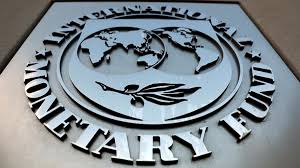
ISLAMABAD, Jun.19 (INP): Antonio Guterres, Secretary-General of the United Nations criticized the International Monetary Fund(IMF) and the World Bank in a recent paper, saying that IMF has benefited rich countries instead of poor ones.
He pointed out that IMF and World Bank’s response to the COVID-19 pandemic which he called a “stress test” for the institutions is a “glaring failure” that left dozens of countries deeply indebted, according to a report carried by China Economic Net (CEN) on Monday.
Guterres said that it’s time for the boards of IMF and World Bank to right what he called the historic wrongs and “bias and injustice built into the current international financial architecture”.
He said the institutions haven’t kept pace with global growth. According to him, the World Bank has $22 billion in paid capital and the money are used for low-interest loans and grants for government development programs, yet, as a percentage of global GDP, it is less than a fifth of the level of funding in 1960.
At the same time, many developing countries are in a deep financial crisis, exacerbated by inflation, rising interest rates and a standstill in debt relief.
Guterres added that IMF’s lending rules unfairly favor wealthy nations. This is done according to the rules, but, this is “morally wrong,” said Guterres.
He called for major reforms such as strengthening the representation of developing countries on the boards of IMF and World Bank, changing IMF quotas, and revamping the use of IMF funds.
Guterres has also previously criticized the global financial institutions in public. He expressed his discontent using strong language during his visit to India in October 2022, saying that the international financial system is “morally bankrupt” as it favors the rich countries, and he expected India’s involvement in reforming it.
There has always been criticism of the two institutions. Maurice Kugler, a professor of public policy at George Mason University, told The Associated Press that the institutions’ failure to help the neediest countries “reflects the persistence of a top-down approach in which the World Bank president is a US national appointed by the US president and IMF managing director is a European Union national appointed by the European Commission.”
Developing countries, including India and China, have long called for reform of the global financial institutions to make them develop realistic and effective programs and give developing countries their due treatment. Although there have been improvements in recent years, the changes are not obvious and rich countries continue to dictate to them.


































































































